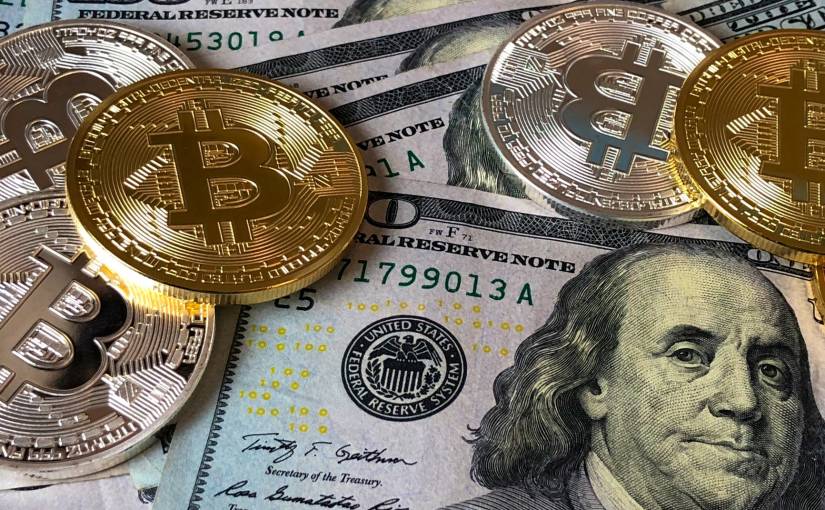Facebook’s Libra cryptocurrency has hit the front page; accordingly, President Donald Trump is hitting back. Rather than embracing cryptocurrency and blockchain, he’s sounding the Twitter alarm. Despite being a free-world leader, his stance is hardly free-thinking. Instead, it’s an insular view based on fear and scarcity — concepts that fly in the face of innovation. We need to reconnect our divided country by embracing abundance.
The appropriate response to Libra should reflect Ronald Reagan’s favorite dictum: “Trust, but verify.” Absolutely, the nation must protect consumers against fraud, but that doesn’t mean the cultural consciousness should hold tight to buggy whip manufacturing or the pony express. Either you’re a fan of open enterprise, or you’re not.
The blockchain debate illustrates our country’s struggle between abundance and scarcity mindsets. If we allow the former to overshadow the latter, we’ll stunt our growth.
Libra promises unrivaled accessibility to financial management beyond our current system. It could open doors to the masses unable to bank because of identity or other hurdles.
Make no mistake: Cryptocurrency isn’t limitless. To possess value, it must have scarcity. Its underlying advantage is that people everywhere can use it to solve inherent problems.
Cryptocurrency: Making the Case
Are there risks to cryptocurrency and blockchain? Yes, and they can be mitigated despite legislators’ admonishments. Congress is locking horns over Bitcoin and Libra, with some leaders claiming cryptocurrency is unstoppable and others certain it’s a criminal’s paradise. They forget fraud occurs with cash, too. If they examined how other revolutionary platforms like PayPal and Venmo have benefited society, they might view new technology from a less suspicious lens.
Interestingly, people aren’t as afraid of blockchain as cryptocurrency, but they don’t know how to embrace it, either.
Like the early internet of the ’90s, the concepts are novel. However, we’ve made Googling an everyday occurrence, and we carry supercomputers in our pockets. We can adjust to the blockchain if we’re open to its possibilities of fostering untold wealth and commerce.
Blockchain might lift the means and circumstances of people globally, starting with voting in Colorado. As head of the National Cybersecurity Center, my team led a proof of concept for a mobile election platform for voting. In Utah County, we launched trials leveraging blockchain to increase returned absentee ballots from those living overseas, including military personnel and families. Additional pilot programs are taking place, giving insight into the viability of mobile votes cast over blockchain on a broader level.
Currently, about 7% of eligible overseas voters exercise their voting rights. Why? Paper-based absentee ballot systems can be expensive and inefficient. They’re not always available, either.
Blockchain-based votes allow more affordable resources and can be submitted in almost real-time.
In limited trials, they’ve protected election integrity with minimal pitfalls. Certainly, getting a population to vote through a smart device comes with its own set of concerns, but small experiments allow us to gauge blockchain’s efficacy in controlled situations.
Here, emerging tech promises abundancy: We could develop and depend on a more accurate voting system if we would only embrace its positive implications.
A World of Plenty
Throughout our life span, America has always taken risks to achieve enhanced, freer existences. Consider the moon landing: Yes, it was fraught with potential issues, but those issues didn’t hold us back — they pushed us. Blockchain, cryptocurrency, and whatever comes next can do the same.
The alarmists will always focus on distrust. In the last 200 years, they balked at reversing slavery or enacting women’s suffrage. Ultimately, their lack of abundance mindset was overcome by individuals willing to bring people’s gifts together to reimagine the future — sometimes paying with their lives. Elections could be the ideal place to put blockchain to work and offer multiple levels of communal transparency, equality, security, and accuracy.
Instead of giving into the fear that creates a paradox between democracy and stagnancy, let’s focus on synergy. Let’s start looking at the power of the whole — not the worries of the other. Focusing on synergy means choosing abundance over scarcity.


















